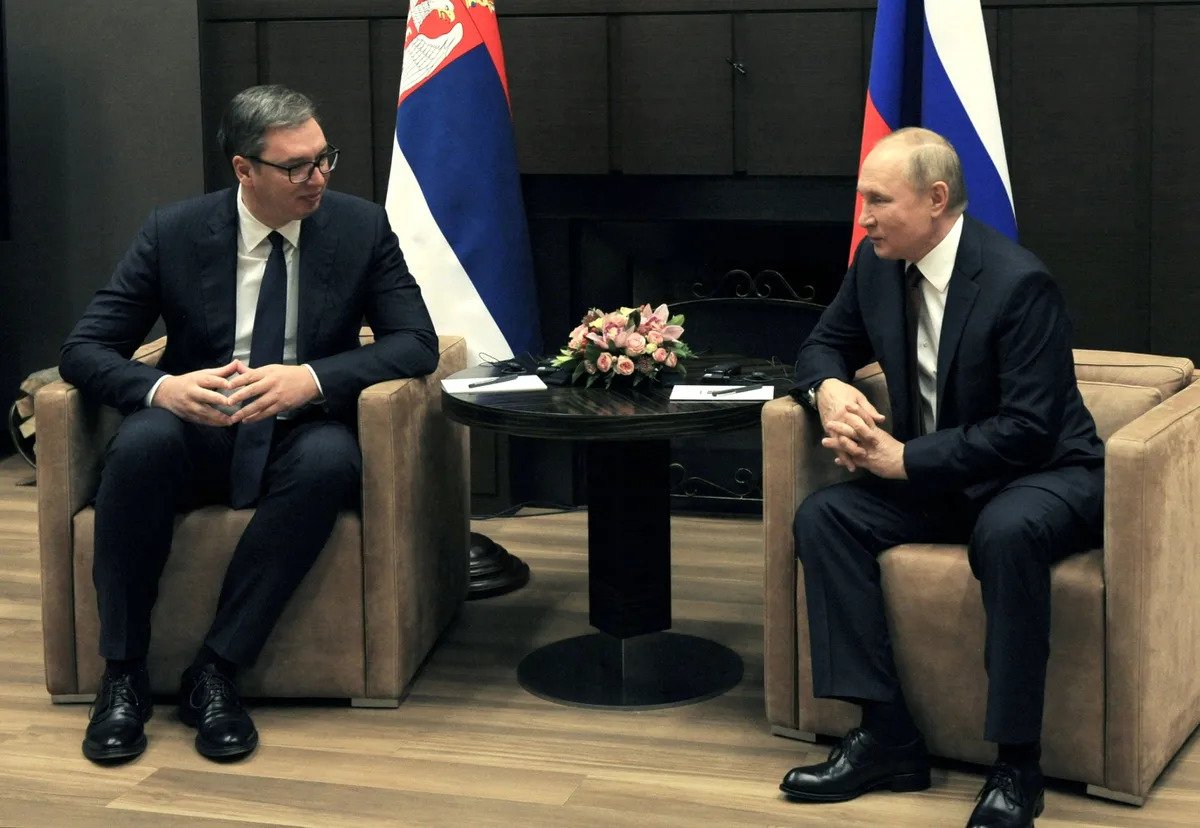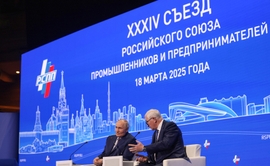Serbian President Aleksandar Vučić announced an “extremely favorable” three-year natural gas supply deal with Russia at a time when Western countries are gradually phasing out their dependence on Russian energy supplies.
“What I can tell you is that we have agreed on the main elements that are very favorable for Serbia,” President Vučić said after a telephone conversation with his Russian counterpart Vladimir Putin on Sunday.
“We agreed to sign a three-year contract, which is the first element of the contract that suits the Serbian side very well.”
Under the new agreement with the Russian energy giant Gazprom, Serbia will pay approximately $400 per 1,000 cubic meters of Russian natural gas — almost four times less than other European countries pay.
In an interview with TV Happy Channel, Zorana Mihajlović, Serbian Deputy Prime Minister and Infrastructure Minister, said that the new agreement with Russia’s Gazprom gives Serbia a “reliable winter” and the best price for Russian gas compared to other European countries.
“This is a good security of supply, a good price, and a good agreement period of three years,” Mihajlović stressed.
The deal will likely be signed during a visit by Russian Foreign Minister Sergei Lavrov to Belgrade in early June.
Despite reports of the atrocities in Ukraine due to the Russian invasion, Serbia refused to take part in the sanctions on Moscow, citing its longstanding political, cultural, and economic ties with Russia. President Vučić claims he wants to take Serbia into the European Union, but imposing sanctions against a longtime ally will be disastrous for his country.
Serbia, formally seeking European Union membership, depends almost entirely on Russian gas, while its leading energy companies are under Russian majority ownership.
Russia’s deal with Serbia came after Moscow cut off gas exports to EU members Finland, Poland, and Bulgaria, which refused to accept the Kremlin’s demand for payment in rubles.
Since Russia’s invasion of Ukraine began on February 24, the EU has been focusing on how to reduce its gas purchases from Russia. Russia has dominated the continent’s natural gas market for decades, and imports of Russian natural gas have continued despite the war in Ukraine.
Comprising 27 countries with a total population of 447 million people, the European Union is considered one of the largest and most prolific markets for energy exporters, given its lack of domestic resources. Russia accounts for 41 percent of the EU’s gas imports, while Norway and Algeria meet only 24 and 11 percent of the block’s gas imports, respectively.
The ongoing tension between the EU and Russia over the war in Ukraine pressured the block on its buildout of renewable sources, which, however, isn’t happening fast enough to eliminate that dependence.







 Azerbaijan has been recognized as one of the safest countries in the world, ranking 90th among 163 countries on the Global Terrorism Index 2025 (GTI).
Azerbaijan has been recognized as one of the safest countries in the world, ranking 90th among 163 countries on the Global Terrorism Index 2025 (GTI).
 The Azerbaijani Defense Ministry has reported ongoing shelling of its army positions by Armenian forces since last week.
The Azerbaijani Defense Ministry has reported ongoing shelling of its army positions by Armenian forces since last week.
 Iranian Foreign Minister Abbas Araghchi has urged the International Atomic Energy Agency (IAEA) to take a "transparent position" regarding potentia...
Iranian Foreign Minister Abbas Araghchi has urged the International Atomic Energy Agency (IAEA) to take a "transparent position" regarding potentia...



